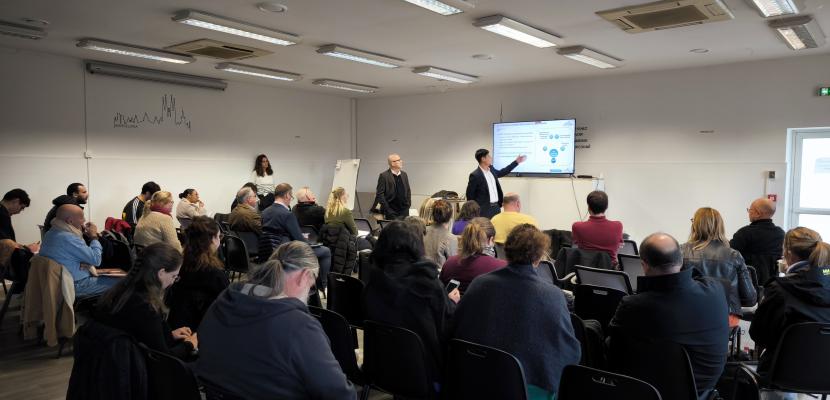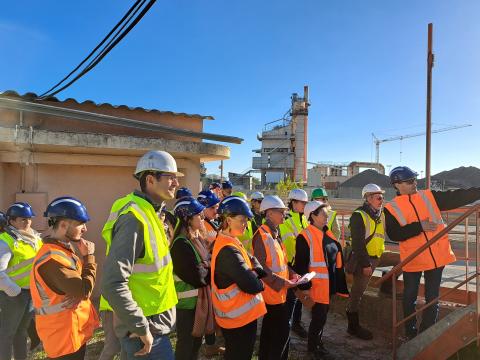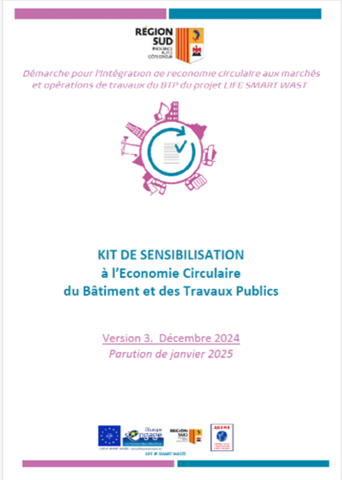
Supporting stakeholders and project owners in integrating circular economy into construction

About this good practice
As part of the LIFE SMART WASTE project (2018-2024), Région Sud launched an innovative initiative to support public project owners in integrating circular economy principles into their contracts and works.
An initial pilot phase with 10 public project owners helped identify technical, regulatory, and organisational levers, establish a common vocabulary, and define the fundamentals of the approach. An expert consultancy firm, appointed by Région Sud, conducted individual audits, guided stakeholders in changing practices, and tested these approaches in a construction project.
This initiative highlighted stakeholders’ needs and led to the development of several practical tools to support the transition:
-Publication of an Awareness Kit to integrate the circular economy into projects, including five case study sheets.
-4 operational technical guides (Buildings, Diagnostics, Public Works, and Secondary Resources).
-A regional network, with 13 working groups and technical visits to encourage exchanges between stakeholders.
- A Circular Economy MOOC for construction professionals, promoted by National Environment Agency named ADEME.
- A self-assessment questionnaire to help project owners evaluate their circular economy maturity.
The objective was to sustain and expand the approach at the regional and national levels, facilitating its adoption by a wide network of committed stakeholders.
Resources needed
Engagement of an expert consultancy from 2019 to 2022 (€100K service) and from 2023 to 2024 (€100K service), funded by Région Sud and LIFE IP SMART WASTE. + 40% of a project officer's time dedicated by Région Sud
Evidence of success
The "Construction Waste and Circular Economy" professional network in Région Sud, has around 2,000 contacts. Published documents were developed with local experts and serve as key references for professionals.
The MOOC has 2,500 registrations over three sessions, with 240 national completion certificates issued. It will run again for a full year in 2025, with 580 registrations since January 2025
Working groups attract an average of 100 participants per session.
Potential for learning or transfer
This approach can be replicated in other regions seeking to integrate the circular economy into public contracts and construction projects.
It is based on:
• Individualized support, including audits, training sessions, and site monitoring for practical application.
• Development of concrete tools (Sensitization Kit, guides, MOOC, questionnaire).
• A dynamic regional network, fostering exchanges and technical visits.
The objective is to expand this approach by facilitating its adoption through accessible educational resources and enhanced regional support, ensuring a lasting shift in professional practices.

